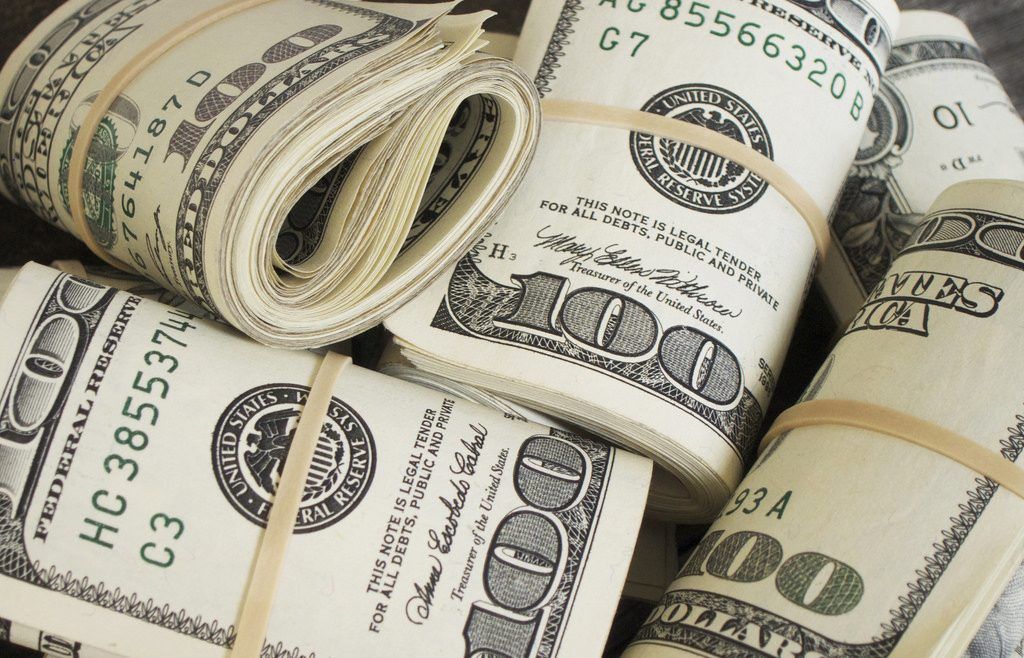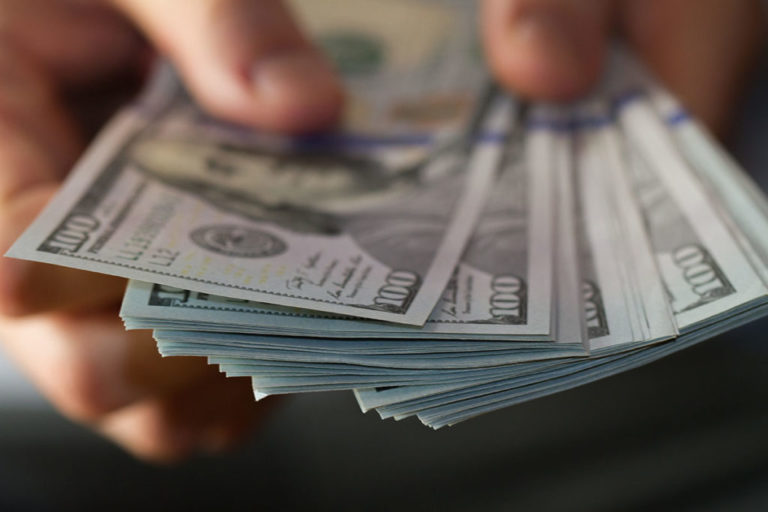The past year has been a rollercoaster and knowing how to save money for an emergency fund proved to be a lifesaver for some of us.
While job loss, sickness and even death were common occurrences back in 2020, those who had some money to stay afloat, were in a huge advantage.
Always, during crisis, some people see new opportunities, while others can lose everything. Be the one who can get better investments, maybe a house etc. and not the one who struggles to stay afloat.
‘No need to save money for emergencies, we’ll always spend it‘. Sounds familiar? Does it seem like, anytime you were able to save some cash for emergency it almost looked like you tempted fate and an emergency appeared before you could say ‘ouch‘? Why bother save money, if you’ll lose it in few months anyway?
Because otherwise you’d get into more debt.
Years ago we’d live paycheck to paycheck. We had some money saved, but, as Murphy never sleeps, at least every few months something happened that would deplete our savings. Sickness, problems with the apartment, unexpected school expenses etc. You name it, we had them all.
This made us frustrated and we eventually though that it’s useless. While we make plans to be financial secure, life makes plan to mess up all our funds, every time we were able to get on solid ground. Again, why bother?
And then, as our finances were getting worse, we didn’t save anymore. We didn’t want to, we didn’t have the funds for it.
As you can expect it, misfortune didn’t avoid us, just because we were unprepared and the next blows threw us in debt.
No, we didn’t get payday loans and didn’t get into credit card debt, but we did have to go borrow money from our friends and it wasn’t pleasant. While we were forcing ourselves to pay them the money back, life would throw at us some more ‘surprises’, just to make fun of us.
SO WHY IS AN EMERGENCY FUND IMPORTANT?
Not having it doesn’t mean you won’t have an emergency. And we don’t talk about sales at Prada or the new plasma tv you ‘have’ to get.
No, we’re talking here life and death situations sometimes, things you cannot avoid. Even if life seems to make fun of you, having your emergency fund set makes the difference between ‘surviving’ the problems and getting neck deep in debt.
As time went by we started saving more money. We always have a ‘cushion’ and keep on saving for various things we have in mind and also for our retirement. As you can guess, there have been emergencies even after we started getting serious with our fund.
Even this year we had quite some ‘surprises’: my laptop broke (and, since I’m a web designer, this is vital for my business) and I had to get a new one (which wasn’t too cheap, since I need a reliable ‘machine’) my medical SEO business struggled most of the year, it wasn’t nice.
Years ago, small emergencies (we’d get into debt for 20% of what we had to pay this year for instance) would mess up our finances for months to come, while now, even some pretty serious needed spending didn’t make a dent in our finances.
Sure, we did use up a lot of our emergency account, but we were able to get it back where it was in under 2-3 months of saving.
And now, since we know we cannot do without an emergency fund, let’s see how we can grow it fast:
CREDIT CARDS ARE NOT AN EMERGENCY FUND
There are many people who, if they have an emergency, will take on some more credit card debt. Do not keep a credit card for this, do not go further in debt. An emergency fund is a ‘stash’ of money you keep in cash or in a small savings account. It’s not something that will carry even more interest and get you into a bigger trouble. Your ideal when it comes to getting financially secure is to PAY OFF ALL DEBT, not rely on credit cards and more loans for when the going gets tough.
So, if you are using credit cards to fund your emergencies, pay the debt off and start saving money the ‘old’ way.
SELL THE JUNK
OK, not all the stuff you don’t need/use in your home is junk, but you get the idea. We tend to clutter our apartments/homes like there’s no tomorrow. We keep old stuff we don’t use or haven’t ever used: from clothing, to decorations, electronic devices etc. Get down and dirty in your closets and cupboards, gather the stuff that’s in good condition and sell it. Whether you organize a yard sale or sell it on ebay, it doesn’t really matter. You’d be amazed to see that, even the ‘junk’ you just kept to gather dust can bring in some money. Maybe not a lot of money, but it’s still more than you had before you started selling.
As you can guess, the next step is to put the money into the emergency fund. Voila, you have some money saved and it didn’t even come that hard.
GOT A BONUS FROM WORK? SOME MONEY PRESENT? SAVE IT.
Any windfall coming your way can be a great help for you to grow your emergency fund. Instead of squandering the money for more useless junk, place it in your savings account. It will be very useful when the car breaks or your kid needs some emergency treatment the insurance doesn’t cover.
Never forget that emergencies don’t stop appearing just because your emergency fund is empty. If you can get your hands on some money that comes ‘out of the blue’, say thanks and place it for future use. It’s a very easy way to get your emergency fund up to speed and it takes no effort from your part, other than keeping yourself from spending the money.
SAVE!
So far we found out about ‘instant’ ways to save some money in our emergency fund, but now we need to do some work. Make it a habit to save money EVERY MONTH. It doesn’t matter if you can save 10 bucks or 1000. Every penny saved is a penny you can rely on, when you’ll need it the most.
I know many people who say ‘we earn too little to save’. Weird enough, I have seen cases where the spouses made so little a month that I thought it’s impossible for them to have any savings at all. Do you know what? They actually saved more than other people with a far bigger income.
Even my family, after seeing how hard it is to handle emergencies with no money, started saving little each month. In some cases the amounts were almost ludicrous, but they did save anyway. Some months were bad, some were better, but at the end of the year they had a big smile on their faces: there was a nice emergency fund for them to use. Instead of me having to ‘save’ them every time something broke, they stopped asking me for help and, when I’d want to give it, they’d just say ‘we have our emergency fund, don’t worry‘.
No matter how much/little you make in a month, if you are making an conscious effort to save some money, you’ll be able to make it happen. Few dollars this month, more next month etc., in 12 months time you’ll be way better equipped to deal with problems than you are now.
SPEND LESS, BUDGET MORE
There are very few families who have stretched their dollars to the max. Most people who complain about how much they spend a month, still haven’t done too much work on cutting their expenses or properly budgeting. Expensive cable, gym membership nobody uses, dining out too often, buying way too many clothes and junk etc., most of these bring your saving potential to the ground and make it hard to live from one paycheck to another.
Keep an expenses journal, budget properly. After 1-2 months of doing this you’ll have a big shock, trust me on that. As soon as you can pinpoint where your money goes each month, you’ll be able to see where you can cut the spending. The money you don’t waste anymore, can now go into your emergency fund and then to paying off debt (if you also have various loans).
Another very important aspect: be consistent. There’s nothing worse in saving money / paying off debt or anything related to your finances than doing it for 2-3 months and then getting lazy. Make it a habit to keep a budget, make it a habit to track your expenses, make it a habit to save.
This should become a LIFESTYLE for yourself. It doesn’t mean there’s no more fun in your life, it just means you are responsible with your hard worked money and getting ready for a lifetime of financial security. I’d say it’s worth the hassle, don’t you?

